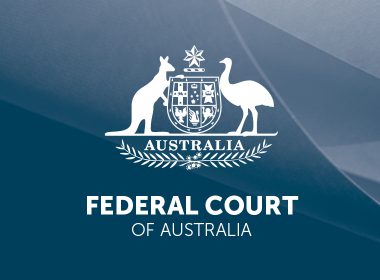Key decisions
- ACN 117 641 004 Pty Ltd (in liq) v S&P Global, Inc (No 5) [2025] FCA 687 (Jo Shepard)
EVIDENCE
Where respondents applied for an order that certain witnesses give oral evidence by audio-visual link shortly before commencement of trial
An eight-week trial involving two sets of proceedings was due to commence imminently when the respondents applied to have two of their key witnesses give their evidence by audio-visual link (‘AVL’). The proceedings involve fraud allegations with alleged monetary damages in the many hundreds of millions. The respondents’ application was opposed on the basis they had not established that the witnesses were unavailable to give their evidence in Australia beyond an assertion to that effect and, further, the credit of one of the witnesses was in issue. In addition, the cross-examination of both witnesses was expected to be document intensive and to take five days in total.
The matter came before Sharrif J, who was not satisfied, on the evidence, that the application ought to be granted. Instead of dismissing the application, his Honour granted leave to the respondents to address the evidentiary issues his Honour raised. The further evidence was filed. However, the respondents proceeded in their application in respect of only one witness.
In ACN 117 641 004 Pty Ltd (in liq) v S&P Global, Inc (No 5) [2025] FCA 687, the further evidence established, and it was accepted by Sharrif J, that the remaining witness was a US federal government employee who was unwilling to travel to Australia given present US governmental policies. Specifically, it was accepted that her fears regarding her job security were ‘understandable’ and genuinely held given the US Presidential and other governmental memoranda regarding ‘Return to In-Person Work’, and the stated US federal objective of reducing the size of its workforce.
The use of AVL does not replicate in every sense the solemnity and atmosphere of a Court room, or the subtle or not so subtle chemistry involved in cross-examination.
Relevant principles
Section 47A(1) of the Federal Court Act 1976 (Cth) (‘Act’) provides that the Court may ‘for the purposes of any proceeding, direct or allow testimony to be given by video link, audio link or other appropriate means’. Section 47C(1) of the Act provides that the Court must not exercise that power unless the Court is satisfied of a number of matters, including that both the courtroom where the proceedings are being heard and the location from which a person is to give evidence are equipped with appropriate facilities for AVL evidence. Subject to these mandatory requirements being met, the Court has a broad discretion to allow AVL evidence.
The trial judge canvassed the authorities concerning the exercise of the discretion regarding taking evidence by AVL. Specifically, his Honour noted the increasing judicial acceptance of the use of AVL brought about by its use during the COVID pandemic and subsequent improvements in technology. Notwithstanding this, his Honour noted:
‘Although the technology has advanced and the legal profession has adapted, it has to be accepted that the use of AVL does not replicate in every sense the solemnity and atmosphere of a Court room, or the subtle or not so subtle chemistry involved in cross-examination’ (at [17]).
Sharrif J agreed with the observations of Gordon J at [10]-[11] in Kirby v Centro Properties Limited [2012] FCA 60: that each case must turn on its own facts and that the exercise of the discretion will involve a balancing exercise as to what will best serve the administration of justice consistently while maintaining justice between the parties (at [22]-[23]). In this respect, his Honour noted it was antithetical to the exercise of the wide discretion under s 47A(1) of the Act to proceed on the basis that the dictates of the interests of justice are such that there is a predisposition towards one or other method of receiving evidence.
Consideration
In the present case, his Honour considered the factors which the Court had previously taken into account in the exercise of the discretion of under s 47A(1) of the Act, namely: the employment commitments of the overseas witness; whether the credibility of the witness is in issue; whether the witness’ evidence will be centrally important; and whether the use of AVL may frustrate or delay the management of documents in cross-examination.
In the exercise of the discretion, Sharrif J determined that the witness’ reasons for not wishing to travel were relevant, as was the potential prejudice to the cross-examiner. The Court also accepted that the respondents would be deprived of the benefit of the witness’ evidence if the order for her evidence to be given by AVL was rejected. In the result, his Honour determined the interests of justice would be best served by making an order that the witness’ evidence be given by AVL, noting that his Honour was prepared to revisit the order should this no longer be the case.


 Joanne Shepard is a barrister in 12th Floor Wentworth Selborne Chambers.
Joanne Shepard is a barrister in 12th Floor Wentworth Selborne Chambers.